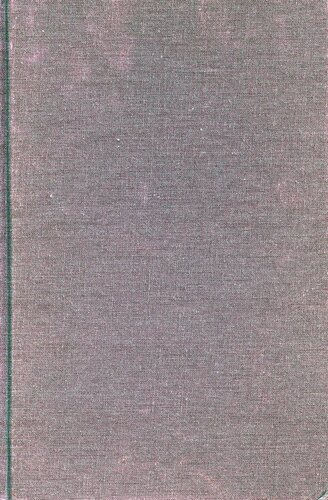

Most ebook files are in PDF format, so you can easily read them using various software such as Foxit Reader or directly on the Google Chrome browser.
Some ebook files are released by publishers in other formats such as .awz, .mobi, .epub, .fb2, etc. You may need to install specific software to read these formats on mobile/PC, such as Calibre.
Please read the tutorial at this link: https://ebookbell.com/faq
We offer FREE conversion to the popular formats you request; however, this may take some time. Therefore, right after payment, please email us, and we will try to provide the service as quickly as possible.
For some exceptional file formats or broken links (if any), please refrain from opening any disputes. Instead, email us first, and we will try to assist within a maximum of 6 hours.
EbookBell Team

5.0
20 reviewsThis book offers an innovative examination of the interactions of science and technology, art, and literature in the nineteenth and twentieth centuries. Scholars in the history of art, literature, architecture, computer science, and media studies focus on five historical themes in the transition from energy to information: thermodynamics, electromagnetism, inscription, information theory, and virtuality. Different disciplines are grouped around specific moments in the history of science and technology in order to sample the modes of representation invented or adapted by each field in response to newly developed scientific concepts and models. By placing literary fictions and the plastic arts in relation to the transition from the era of energy to the information age, this collection of essays discovers unexpected resonances among concepts and materials not previously brought into juxtaposition. In particular, it demonstrates the crucial centrality of the theme of energy in modernist discourse. Overall, the volume develops the scientific and technological side of the shift from modernism to postmodernism in terms of the conceptual crossover from energy to information. The contributors are Christoph Asendorf, Ian F. A. Bell, Robert Brain, Bruce Clarke, Charlotte Douglas, N. Katherine Hayes, Linda Dalrymple Henderson, Bruce J. Hunt, Douglas Kahn, Timothy Lenoir, W. J. T. Mitchell, Marcos Novak, Edward Shanken, Richard Shiff, David Tomas, Sha Xin Wei, and Norton Wise.